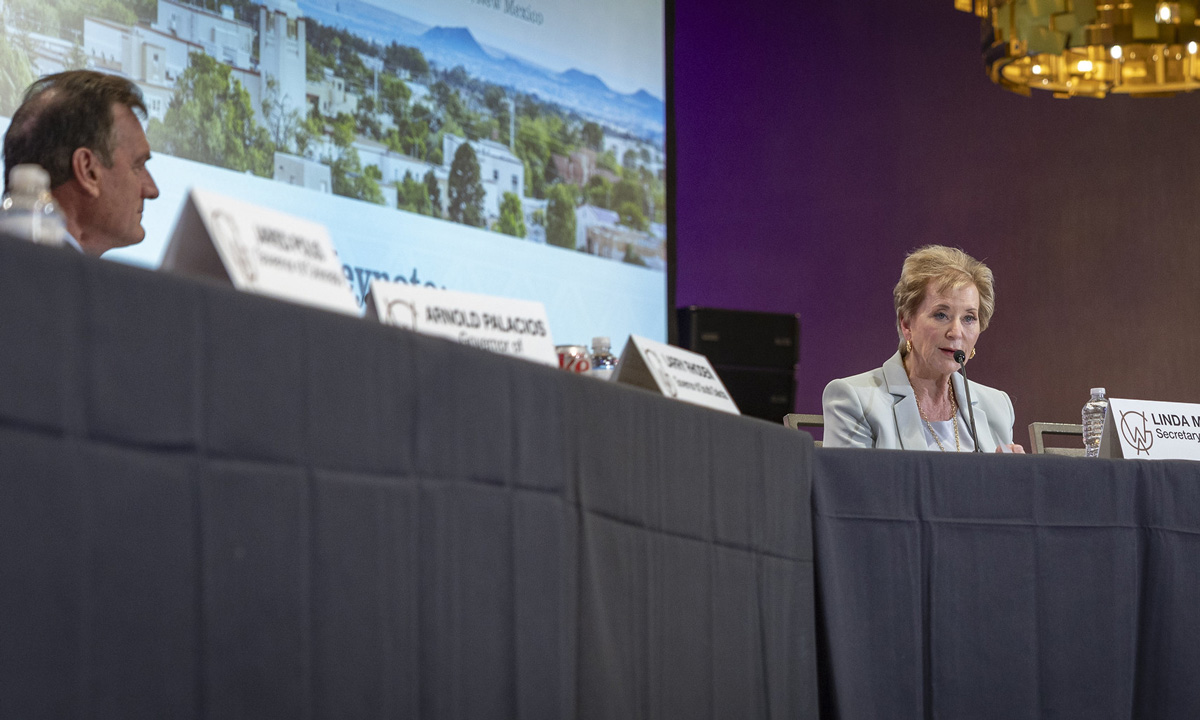Nearly $7 Billion for Schools in Jeopardy as Ed Dept. Holds Up Federal Funds
The department is reviewing whether funding for migrant students and afterschool programs fits Trump’s priorities.

Get stories like this delivered straight to your inbox. Sign up for The 74 Newsletter
English learners, students who depend on afterschool care and the children of migrant workers could lose services after the U.S. Department of Education abruptly announced Monday it wouldn’t disperse nearly $7 billion in education spending that Congress already approved.
The funds, which states normally can access by July 1, pay for staff salaries, teacher training, curriculum materials and other essential expenses. That means states and districts will likely have to cut those functions or find other ways to pay for them. The delay, for example, threatens over $1.3 billion in funding for 21st Century Community Learning Centers, which goes to schools, libraries and nonprofits that provide tutoring and enrichment programs.
“We will very quickly see more children and youth unsupervised and at risk, more academic failures, more hungry kids, more chronic absenteeism, higher dropout rates, more parents forced out of their jobs,” said Jodi Grant, executive director of the Afterschool Alliance, an advocacy organization.
The possible cancellation of additional federal funds for schools adds to the upheaval created by the elimination of existing grants and contracts amid Trump’s ongoing efforts to shut down the department. His proposed fiscal 2026 budget would also shrink over $6.5 billion for 18 programs into a $2 billion block grant. Last week, Education Secretary Linda McMahon assured members of the Western Governors Association that special education funding and Title I grants for high-poverty schools would be “level funded,” according to a recording of the meeting shared with The 74. But she never mentioned the fate of the other programs, and state leaders didn’t ask.
Trump officials based Monday’s move on “the change in administrations,” even though the president signed the budget on March 15. The department, the note said, has not yet made decisions about “awards for this upcoming academic year” and remains committed to ensuring taxpayer resources are spent in accordance with the president’s priorities.”
If the administration follows through with clawing back the funds, the move is certain to spark another lawsuit. Federal courts have mitigated the effects of previous cuts. McMahon, for example, tried to rescind over $2 billion in remaining COVID relief funds until 15 states and the District of Columbia won an injunction.
Last week, in response, she told all states with remaining funds that to avoid “uniformity and fairness problems,” they could once again submit receipts for reimbursement.
A seldomly used law, the Impoundment Control Act, allows the administration to withhold funds that Congress appropriates, but the president has to first seek lawmakers’ approval, which he didn’t do in this case. Last week, Russ Vought, director of the Office of Management and Budget, told senators that officials were considering a plan to hold on to funds intended for some agencies, but both Democrats and Republicans appeared skeptical.
In a statement Tuesday, Washington Sen. Patty Murray, ranking Democrat on the appropriations committee, said the freeze will impact students in every ZIP code.
“President Trump and Russ Vought need to stop sabotaging our students’ futures and get these resources out the door,” she said. “Local school districts can’t afford to wait out lengthy court proceedings to get the federal funding they’re owed — nor can they make up the shortfall, especially not at the drop of a pin.”
Some advocates called on the Senate to delay final confirmation of Trump’s education department nominees, including Penny Schwinn as deputy education secretary and Kimberly Richey to lead the Office for Civil Rights, until the funds are released.
The organizations, including All4Ed, EdTrust, Educators for Excellence and the National Center for Learning Disabilities, criticized the department’s move as “a potential violation of federal law and a direct threat to the educational opportunities of our nation’s most vulnerable students.”
In addition to the funding for afterschool programs, states are waiting on over $2 billion to recruit and train teachers, especially for high-needs schools; almost $900 million to support English learners; and $376 million for migrant education programs.
Gustavo Balderas, president of AASA, the School Superintendents Association, and superintendent of the Beaverton, Oregon, district, said districts nationwide would feel the pinch.
“Districts are already stretched financially and this will be another unanticipated reduction to America’s public school system,” he said. “With school starting in a few weeks, budgets will have to be restructured and some staff positions will have to be reduced.”
Districts may also lose their chance to spend federal funds on such programs in the future, if they find another way to pick up costs this year. The “supplement, not supplant” rule in the Every Student Succeeds Act holds that if a district used state or local funds for a program, then they don’t need federal dollars to cover it, explained Matt Colwell, who previously oversaw federal programs for the Oklahoma State Department of Education.
“The law severely limits what they can do once they lock into paying for it with state funds,” he said. He also wondered whether staff reductions played a role in holding up the funds. “‘We are looking into it’ could be a way around saying, ‘We fired all the people that actually take care of this.’ ”
Get stories like these delivered straight to your inbox. Sign up for The 74 Newsletter

;)
